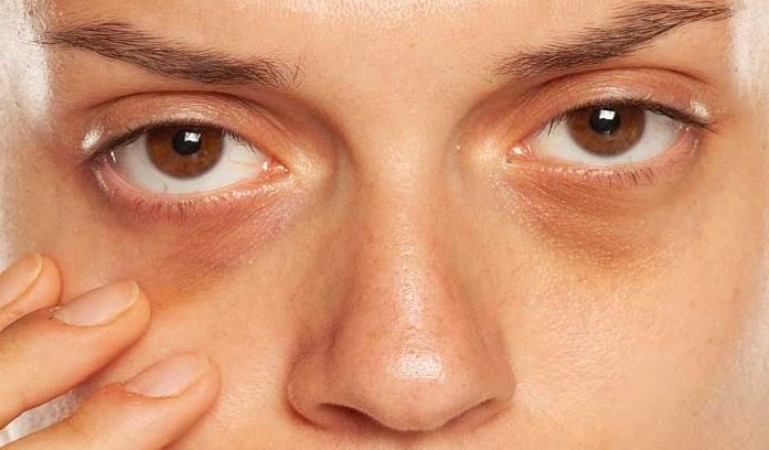
Dark circles, also known as periorbital hyperpigmentation, are a common cosmetic concern affecting individuals of all ages and backgrounds. While lack of sleep is often attributed to their occurrence, the underlying causes can be multifaceted and complex. In this comprehensive guide, we will delve into the various factors contributing to dark circles, from lifestyle choices to medical conditions, and explore effective strategies for prevention and treatment.
Stress and Dark Circles:
Stress is a pervasive factor in modern life, impacting physical and mental well-being in profound ways. Chronic stress can lead to a cascade of physiological changes in the body, including hormonal imbalances and inflammation, which may manifest as dark circles under the eyes. Elevated cortisol levels, often associated with stress, can weaken the delicate blood vessels around the eyes, leading to leakage and pooling of blood, resulting in a darkened appearance. Moreover, stress-induced sleep disturbances can exacerbate the problem, creating a vicious cycle of fatigue and dark circles.
Strategies for Stress Management:
Incorporate stress-reduction techniques such as meditation, deep breathing exercises, and mindfulness practices into your daily routine.
Prioritize self-care activities that promote relaxation and rejuvenation, such as taking warm baths, going for nature walks, or engaging in hobbies you enjoy.
Maintain a healthy work-life balance by setting boundaries, delegating tasks, and seeking support from friends, family, or mental health professionals when needed.
Nutritional Deficiencies and Dark Circles:
Our dietary choices play a significant role in skin health, and deficiencies in essential vitamins and minerals can contribute to the development of dark circles. Vitamin deficiencies, particularly vitamins A, C, and K, can impair collagen production, weaken blood vessels, and interfere with the body's ability to repair and regenerate skin cells. Additionally, inadequate intake of antioxidants, such as vitamin E and selenium, can exacerbate oxidative stress and accelerate skin aging, leading to increased pigmentation and dark circles.
Strategies for Nutritional Support:
Eat a balanced diet rich in fruits, vegetables, whole grains, lean proteins, and healthy fats to ensure adequate intake of essential nutrients.
Incorporate foods high in vitamins A, C, and K, such as leafy greens, citrus fruits, carrots, and bell peppers, into your meals and snacks.
Consider supplementation with multivitamins or specific nutrient supplements under the guidance of a healthcare professional, especially if you have known deficiencies or dietary restrictions.
Sun Exposure and Hyperpigmentation:
Prolonged exposure to ultraviolet (UV) radiation from the sun is a leading cause of skin damage and premature aging. UV rays penetrate the skin, triggering melanin production and causing hyperpigmentation, including dark circles under the eyes. The delicate skin in this area is particularly vulnerable to UV-induced damage due to its thinness and limited melanin content, making it prone to discoloration and uneven pigmentation over time.
Strategies for Sun Protection:
Apply broad-spectrum sunscreen with SPF 30 or higher to the entire face, including the under-eye area, every day, even on cloudy or overcast days.
Wear sunglasses with UV protection and wide-brimmed hats when outdoors to shield the eyes and surrounding skin from harmful UV rays.
Seek shade during peak sun hours, typically between 10 a.m. and 4 p.m., to minimize UV exposure and reduce the risk of sunburn and skin damage.
Anemia and Under-Eye Circles:
Anemia, a condition characterized by low levels of red blood cells or hemoglobin in the blood, can result in reduced oxygen delivery to tissues throughout the body, including the skin. When oxygen supply is compromised, blood vessels may dilate to compensate, leading to increased visibility of the underlying vasculature and a bluish or purplish tint under the eyes. Additionally, iron deficiency anemia can cause paleness or pallor in the skin, making dark circles more noticeable against a lighter complexion.
Strategies for Managing Anemia:
Consult with a healthcare professional to determine the underlying cause of anemia and develop a personalized treatment plan, which may include iron supplementation, dietary modifications, or other interventions.
Increase your intake of iron-rich foods such as lean meats, poultry, fish, beans, lentils, tofu, spinach, and fortified cereals to support healthy blood cell production and replenish iron stores.
Avoid consuming iron inhibitors, such as caffeine, calcium-rich foods, and certain medications, which can interfere with iron absorption and exacerbate anemia.
Thyroid Dysfunction and Periorbital Pigmentation:
The thyroid gland plays a crucial role in regulating metabolism, energy production, and hormone balance in the body. When thyroid function is disrupted due to conditions such as hypothyroidism or hyperthyroidism, hormone levels may fluctuate, leading to various systemic effects, including changes in skin appearance and texture. Thyroid disorders can affect melanin production and distribution in the skin, resulting in hyperpigmentation, particularly in areas with thinner skin, such as the under-eye area.
Strategies for Thyroid Management:
Consult with an endocrinologist or healthcare provider for comprehensive thyroid testing, including thyroid hormone levels and thyroid antibody tests, to assess thyroid function and identify any underlying thyroid disorders.
Follow prescribed treatment protocols, which may include hormone replacement therapy, medications, or lifestyle modifications, to restore thyroid hormone balance and alleviate symptoms of hypothyroidism or hyperthyroidism.
Monitor thyroid function regularly through follow-up appointments and blood tests to ensure optimal thyroid health and prevent complications associated with untreated thyroid dysfunction.
Dark circles are a common cosmetic concern affecting individuals worldwide, with various factors contributing to their development and persistence. While lack of sleep is often cited as a primary cause, other lifestyle factors, nutritional deficiencies, sun exposure, anemia, and thyroid dysfunction can also play significant roles. By addressing these underlying factors through targeted interventions, including stress management, nutritional support, sun protection, anemia management, and thyroid optimization, individuals can effectively reduce the appearance of dark circles and achieve healthier, more radiant skin.
These 4 exercises can reduce extra fat on the body